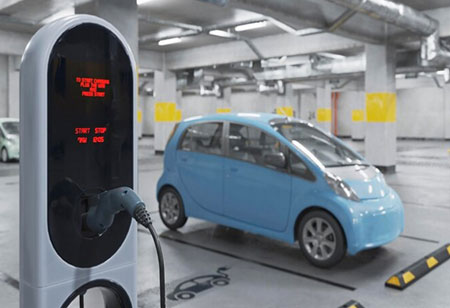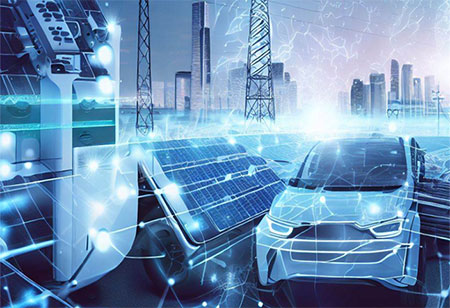
The electric vehicle (EV) industry is at the forefront of innovation, particularly with the introduction of smart charging technology, which heralds a new era of mobility. This advanced system presents innovative solutions to address the evolving challenges of electric transportation, representing a significant departure from traditional charging methods. Smart charging focuses on optimizing the charging process by incorporating sophisticated software algorithms, real-time data analytics, and seamless connectivity. It enhances the efficiency and reliability of EV charging while also contributing to the sustainability and stability of the grid through dynamic control of energy resources. Thus, smart charging is not just a buzzword of 21st century but a necessary evolution in the electrification of transportation which represents a paradigm shift towards more intelligent, efficient, and sustainable mobility solutions.
What is Smart Charging Technology?
Smart charging technology has garnered significant attention due to its pivotal role in addressing key challenges and unlocking numerous benefits for the EV industry. Referred to as intelligent charging, smart EV charging entails a system where an electric vehicle and a charging device establish a data connection, complemented by the charging device's communication with a charging operator. Unlike conventional "dumb" charging systems lacking cloud connectivity, smart charging empowers charging station owners to optimize energy utilization through remote monitoring, control, and regulation of their devices. The integration of cloud-based solutions in smart EV charging opens up limitless possibilities. This connectivity enables seamless addition or removal of features within smart EV charging services, streamlining customization to meet specific requirements. It is also possible to modify or add new functionality to existing charging stations which makes it future proof.
"Government initiatives further propel the EV market while increasing urbanization and the demand for quieter, cleaner vehicles, especially for last-mile delivery; contribute to this rapid market growth" - Chakravarthi C, Managing Director, Quantum Energy
How do Smart EV Stations Operate?
The advanced backend infrastructure driving smart electric car chargers provides charging station owners with immediate access to real-time data from interconnected charging devices and charging activities. With their seamless cloud connectivity, these charging stations can be managed through various signals, such as adjusting energy output, monitoring nearby electricity consumption, accounting for the number of vehicles undergoing charging, or considering the usage of electrical appliances on adjacent properties. Moving forward, intelligent EV charging is imperative to construct a more sustainable energy ecosystem founded on renewable energy sources.
 4 Major Benefits of using Smart Charging Technology
4 Major Benefits of using Smart Charging Technology
Optimized Energy Use: Smart charging makes it possible to use energy resources more sparingly by arranging charging at off-peak times when electricity is less expensive and grid demand is lower. This results in reduced financial strain on EV owners as well as on the electrical grid.
Cost savings: By utilizing demand response programmes and time-of-use pricing, smart charging allows electric vehicle (EV) owners to benefit from reduced electricity costs in comparison to traditional charging methods. This ultimately leads to cost savings.
Improved User Experience: EV owners now enjoy more freedom and convenience compared to earlier days, thanks to intelligent charging options. Scheduling, remote monitoring, and several payment options are features that make charging easier and provide customers more control over charging activities.
Future-proof & Adaptive: smart charging infrastructure can handle the increasing number of electric vehicles (EVs) on the road. It also makes it possible to include upcoming services and technology, guaranteeing its durability and applicability in the developing EV industry.
Market Insights & Growth
Over the past five years, India's electric mobility sector has undergone exponential growth, establishing the nation as a frontrunner in the global EV market. This momentum is anticipated to persist, with the market projected to expand at an impressive average annual rate of 49 percent between 2021 and 2030. Several factors contribute to this growth, with particular emphasis on heightened public awareness and supportive government initiatives in favor of EVs. A study by Bain and Company reveals that 52 percent of urban consumers in India plan to increase their expenditure on environmentally friendly companies over the next three years. Additionally, a significant proportion, at least 60 percent, of Indian customers is willing to pay a premium for sustainable products, thereby boosting EV adoption. Furthermore, the government's implementation of various initiatives, such as the PLI scheme and FAME India, has further propelled the adoption of electric scooters in the country. As the demand for electric vehicles continues to surge, so does the necessity for smart charging stations. According to the Ministry of Power, there are presently 1640 active public EV chargers in India. With the nation's growing population, the proliferation of EV charging centers is inevitable, leading to a corresponding rise in the demand for charging infrastructure.
We use cookies to ensure you get the best experience on our website. Read more...